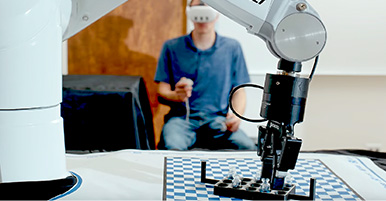Citation
Roschelle, J., Tatar, D., Shechtman, N., & Knudsen, J. (2008). The role of scaling up research in designing for and evaluating robustness. Educational Studies in Mathematics. 68(2).
Abstract
One of the great strengths of Jim Kaput’s research program was his relentless drive towards scaling up his innovative approach to teaching the mathematics of change and variation. The SimCalc mission, “democratizing access to the mathematics of change,” was enacted by deliberate efforts to reach an increasing number of teachers and students each year. Further, Kaput asked: What can we learn from research at the next level of scale (e.g., beyond a few classrooms at a time) that we cannot learn from other sources? In this article, we develop an argument that scaling up research can contribute important new knowledge by focusing researchers’ attention on the robustness of an innovation when used by varied students, teachers, classrooms, schools, and regions. The concept of robustness requires additional discipline both in the design process and in the conduct of valid research. By examining a progression of three studies in the Scaling Up SimCalc program, we articulate how scaling up research can contribute to designing for and evaluating robustness.


